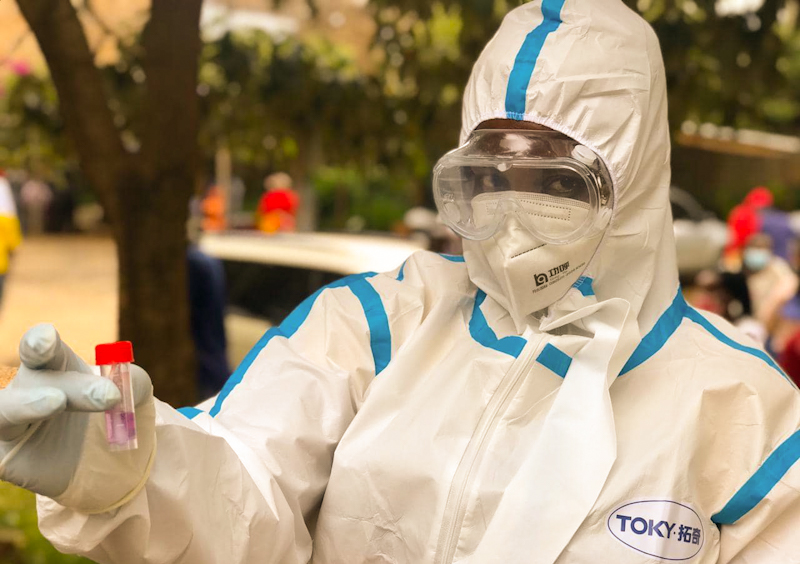The new coronavirus variant Omicron (B.1.1.529) has an “unprecedented number” with “severe consequences”, the World Health Organization said Monday.
In a technical brief, ‘Enhancing Readiness for Omicron (B.1.1.529): Technical Brief and Priority Actions for the Member States’ on the newest “variant of concern”, the UN health body cautioned that assessments done were based on limited information, but said the overall global risk related to the highly mutated variant was “very high”.
“Given mutations that may confer immune escape potential and possibly transmissibility advantage, the likelihood of potential further spread of Omicron at the global level is high,” the WHO wrote in the brief released on Monday afternoon.
“Depending on these characteristics, there could be future surges of Covid-19, which could have severe consequences, depending on a number of factors including where surges may take place.
“The overall global risk related to the new [variant of concern] Omicron is assessed as very high.”
The variant was originally found in Botswana and is now present in South Africa and Hong Kong.
“This is quite a concern globally, and also it is quite a concern, especially in the southern part of the African continent,” said Dr Nicksy Gumede-Moeletsi, a virologist for the World Health Organization’s regional office in Africa on Thursday.
Recommended actions for people
The most effective steps individuals can take to reduce the spread of the COVID-19 virus is to keep a physical distance of at least 1 metre from others; wear a well-fitting mask; open windows to improve ventilation; avoid poorly ventilated or crowded spaces; keep hands clean; cough or sneeze into a bent elbow or tissue, and get vaccinated when it’s their turn.
In Africa, according to the latest WHO survey of 25 African states, an average of only 27 per cent of health workers (1.3 million people) are fully vaccinated against COVID-19.
Based on data reported to WHO by countries in the African Region, since March 2020, there have been more than 150 400 COVID-19 infections in health workers, accounting for 2.5 per cent of all confirmed cases and 2.6 per cent of the total health workforce in the region.
Five countries account for about 70% of all the COVID-19 infections reported in health workers: Algeria, Ghana, Kenya, South Africa and Zimbabwe.





3 Comments
Pingback: MPC Holds Interest Rates Steady at 7pct; Economic Outlook Positive
Pingback: Kenya Economy to Grow at 6.4% in 2021: CBK
Pingback: Omicron Effect: Kenya Requires Proof of Covid-19 Vaccination in Public Spaces